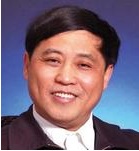A full-fledged elevation of the status of the market, and a call for a “decisive role” of the market in resource distribution, is the most eye-catching statement in the communiqué from the just-concluded Third Plenum of the 18th Central Committee of the Communist Party of China.
China’s reform and opening up over the past 35 years have proven that the market system is a more efficient economic mechanism, although it still has problems and may sometimes fail in its functions. Under a market system, the decentralized decision-making process means that companies and individual entities can make the most efficient use of their available resources, and assume responsibilities for their decisions. To let the market play a decisive role in resource distribution, however, there must be a precondition for a good system . Otherwise, market competition among companies and individual entities trying to maximize their benefits will likely lead to the occurrence of the Hobbesian jungle, and consequently the efficiency of the market economy will not be brought into full play.
As the communiqué states, to guarantee a decisive role of the market in resource distribution, it is a prerequisite to ensure the autonomy of enterprises and individual entities in their business operations and the free flow of resources, to foster fair competition, to eliminate market barriers, to establish equal and transparent market rules, and to develop an effective market pricing system.
In other words, the effectiveness of the market economy is based on a series of good systems. Without establishing these systems, it will not be possible to guarantee an efficient market operation. A clear-cut definition of government functions has a direct bearing on the establishment of the good systems. For instance, the definition of property rights, the effective performance of contracts and the establishment of a fair and equitable trading order can only materialize through the execution of government functions. In this sense, reform of the economic system is also a process to define the modern government functions.
If the basic functions of the government are not clearly defined, the government will either excessively intervene in the market, or will take a laissez-faire attitude, and it will be an impossible mission to establish an effective market mechanism. The consequence will likely be that the government is unable to efficiently allocate social resources, bring the vigor and potential of economic activity into full play, nor promote social and economic development and prosperity in a more efficient way. Therefore, the definition of government functions and the relationship between the government and the market are the core issues in China’s economic system reforms.
In establishing the good systems, several questions must be answered. First, how will the government functions be defined? Who is in the position to define the functions, by the government itself or through public decisions? If the government is to define its own functions, can it be guaranteed that all government officials are unselfish? If not, can anybody guarantee that they will not institutionalize their own interests? Experience shows that when a new term of government takes office, they all have ambitious plans for government reform, but the actual results usually turn out to be far from satisfactory. In the words of Wang Qishan, secretary of the Central Commission for Discipline Inspection, “revolution targets at others, while reform targets at oneself.” If government officials are to reform themselves, it would not be easy for them to trim their own benefits through reform. If the functions are to be defined through public decisions from outside, how can such decisions be made and can it be guaranteed through an institutionalized manner? The communiqué mentioned this but did not go into details.
Second, how can the system guarantee an efficient operation of the market, or who will make such arrangements? Even if such a system is established, how can the arrangements be effectively enforced? According to the communiqué, arrangements for an effective operation of the market were devised by a few elites, in other words, at a top-level. If this is the case, a few assumptions should be addressed. On the one hand, the elites should not be selfish and remain fair-minded. Otherwise, they would easily institutionalize their own interests. On the other hand, these elites must have the capability to gather abundant information and have inclusive knowledge, otherwise it would be impossible to devise a perfect system; nor would it give due consideration to the interests of all parties. Under such circumstances, there are still uncertainties, whether or not arrangements can guarantee that the market can play a decisive role in the distribution of resources.
Third, there should be effective supervision and restraint over government power in defining government functions and guaranteeing the decisive role of the market. The communiqué states that power should be placed under supervision of the people and should be exercised transparently, and that this is fundamental to regulate the power. The words “the people” and “regulations” are used in a narrow sense, and regulations mean more of a self-improvement in the ruling party’s power system. Restraints and supervision are probably not enough to meet the demands of the market economy. This is also the reason for the rising number of corrupt officials and the growing amount of money involved in corruption cases in recent years. If government power cannot be placed under effective restraint and supervision, and if resource distribution at the discretion of power continues to be rampant, the anticipated decisive role of the market in resource distribution will be undermined.
In sum, the most significant point of the plenary session is to give a decisive role to the market in resource distribution, and to apply this principle in all major sectors of the economy. This is a move in the right direction. But to guarantee the decisive role for the market, a series of new system arrangements must be made in place in order to achieve the goal.
Yi Xianrong is a researcher of the Finance Institute of the Chinese Academy of Social Sciences.

